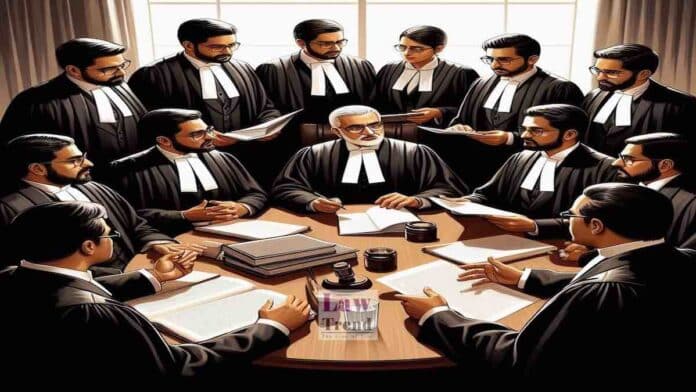Lawyers across Delhi’s district courts abstained from work on Monday in protest against the proposed Advocates (Amendment) Bill, which seeks to bar advocates from boycotting or abstaining from court work. The strike was called by the Coordination Committee of all District Court Bar Associations to oppose the draft Bill introduced by the Union Law Ministry.
In a circular issued on Sunday, the committee stated that it had “unanimously” decided to abstain from work against the “unjust, unfair, and biased” Bill. The statement further read, “The Bill is totally against the unity, integrity, and dignity of advocates and is draconian in nature. It will directly affect the autonomy of all Bar Associations and Bar Councils across states.”
A major point of contention is Section 35A of the proposed amendment, which states:
“No association of advocates or any member of the association or any advocate, either individually or collectively, shall give a call for boycott or abstinence from courts’ work or cause obstruction in any form in court functioning or within court premises.”
This provision essentially bans strikes and boycotts by lawyers, which have traditionally been a tool for voicing concerns.
However, an exception allows symbolic or one-day token strikes, provided they do not disrupt court proceedings or violate clients’ rights. The Bill states that such strikes can be held to highlight professional concerns, working conditions, or administrative issues. Any violation of this provision would invite disciplinary action.
Another contentious provision is Section 4 of the draft Bill, which allows the Central Government to nominate up to three members to the Bar Council of India, in addition to the existing membership of the Attorney General of India and the Solicitor General. Lawyers fear this could dilute the independence of the legal profession.
The Bill also proposes changes to enrollment eligibility for advocates. A new clause states that a State Bar Council cannot enroll any person convicted of an offence punishable with imprisonment of three years or more. Additionally, the definition of a “law graduate” has been expanded to include degrees obtained from any centre of legal education or university established by law or a college affiliated with a recognized university.
Delhi’s legal community has strongly opposed the Bill, arguing that it interferes with the independence of the Bar.




